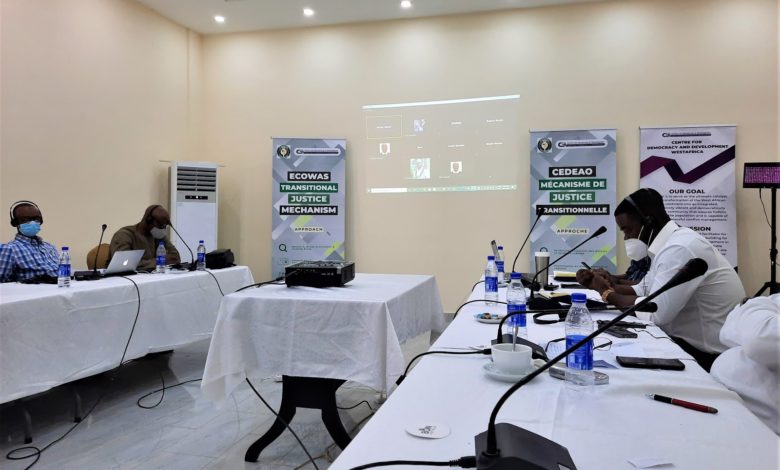‘More Media Partnerships Needed To Facilitate Transitional Justice In West Africa’

Journalists and human rights experts across various West African countries have recognised as crucial the place of the media in supporting transitional justice processes in the region.
This was agreed upon at a consultative meeting held in Lagos, Nigeria, between Monday and Tuesday. Supported by the Economic Community of West African States (ECOWAS), the event was held by the Centre for Democracy and Development (CDD), a not-for-profit research and advocacy organisation.
The participants, among other recommendations, urged media organisations to partner among themselves, as well as with non-governmental and civil society organisations, and regional bodies.
Such partnerships, they observed, would help to gain access to victims of human rights violations, build knowledge and capacity, and facilitate transitional justice processes.
“Partnerships may also be useful for financing media activities in countries where other funding models are untenable,” they added.
They encouraged journalists to be ethical in their reporting by limiting bias, avoiding sensationalist headlines, always verifying information, respecting the privacy of their interviewees, treating victims and aggrieved parties with dignity, and speaking truth to power.
“The language used by the media must not cause harm. It must not exacerbate conflict or add novel problems,” they said.
The stakeholders further recommended that journalists in various countries can leverage the new media to circumvent repressive regimes.
“The media should be included in the Terms of Reference and, rather than being bystanders, the media must be active from the beginning of the transitional justice process,” they continued.
“The media should set the agenda and drive the transitional justice process and engage in investigations and research around the issues of the violence.”
In writing stories about conflict and transitional justice, media professionals were encouraged to listen earnestly to victims and allow them to share their experiences without judgment and preconceived notions.
This, the participants acknowledged, is because victims of atrocious human rights abuses tend to begin healing from having someone listen genuinely as they express themselves.
The two-day dialogue, which centred on strengthening the role of the media in transitional justice processes, was part of a series on engagements aimed at developing a Transitional Justice Policy Framework that strengthens peacebuilding in ECOWAS member-states.
It was attended by media practitioners and human rights experts from 11 of the 15 ECOWAS member-countries, including Benin Republic, Cote d’Ivoire, Ghana, Guinea Bissau, Guinea-Conakry, Burkina Faso, Liberia, Nigeria, Senegal, Sierra Leone, and Togo.
In a summary of the contributions compiled after the event, the participants noted that the media was important because of its ability to trigger transitional justice processes, start discussions on injustice, telling the stories of victims, holding alleged perpetrators accountable, and pressuring the authorities to take action.
They acknowledged that there were, however, challenges in the way of journalists achieving these ideals. These included the lack of adequate funding for public service journalism, lack of political will on the part of government actors to implement transitional justice recommendations, compromised ownership of media organisations, as well as capacity gaps among media practitioners.
“There is a need to find creative ways to raise funds and to educate media personnel on transitional justice mechanisms,” they said.
Support Our Journalism
There are millions of ordinary people affected by conflict in Africa whose stories are missing in the mainstream media. HumAngle is determined to tell those challenging and under-reported stories, hoping that the people impacted by these conflicts will find the safety and security they deserve.
To ensure that we continue to provide public service coverage, we have a small favour to ask you. We want you to be part of our journalistic endeavour by contributing a token to us.
Your donation will further promote a robust, free, and independent media.
Donate HereStay Closer To The Stories That Matter




